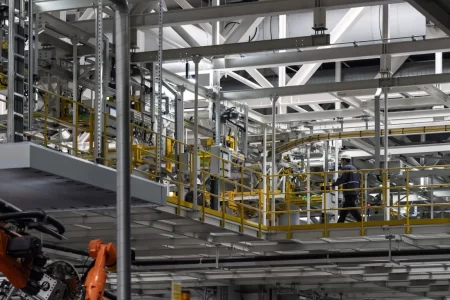Ghana needs to move quickly to avert any possible dire consequences of a declining electricity and gas sector, which is a major player in the country’s industrial sector.
This is because as the country’s industrial production continues to make steady and sustained progress, a critical enabler of industries, the electricity and gas sector meant to power the industrialization drive is facing significant challenges.
Ghana Statistical Service (GSS) report reveals that the country’s Industrial Production in the second quarter of 2024 maintained its momentum recording a year-on-year growth rate of 8.2% higher than the same period in 2023.
This means that the Industrial Production Index (IIP) for the second quarter of 2024 increased to 99.8% from 92.2% in the same period last year.
The main drivers of this industrial growth, i.e. manufacturing and mining & quarrying sectors recorded a strong growth rate of 8.3%. and 8.2% respectively.
But there is bad news. A critical component of the industrial sector which is the backbone powering all industrial productions rather reported a decline of 1.4% during the same period.
This dip in the electricity and gas sector has raised serious concerns about the sustainability of the gains made in the other sectors should the issues in the critical sector persist.
Experts agree that reliable and low-cost energy is essential to keep the country’s factories, mines, and production lines running effectively to drive growth.
The electricity and gas sector’s poor performance comes at a time when industrialization is gathering momentum hence a potential red threat to industries.
If left unchecked, this energy shortfall could stifle growth, reduce productivity, and limit the capacity of Ghana’s key industrial sectors to scale up and meet the demands of a growing economy.
Experts warn that without immediate intervention, the energy sector’s struggles could result in frequent blackouts, higher electricity tariffs, and increased operational costs for businesses, potentially discouraging both domestic and foreign investment in the country’s industrial space.
This could undo some of the progress being made in manufacturing and mining, sectors that have shown resilience and growth potential amid global economic headwinds.
Source:thehighstreetjournal.com

